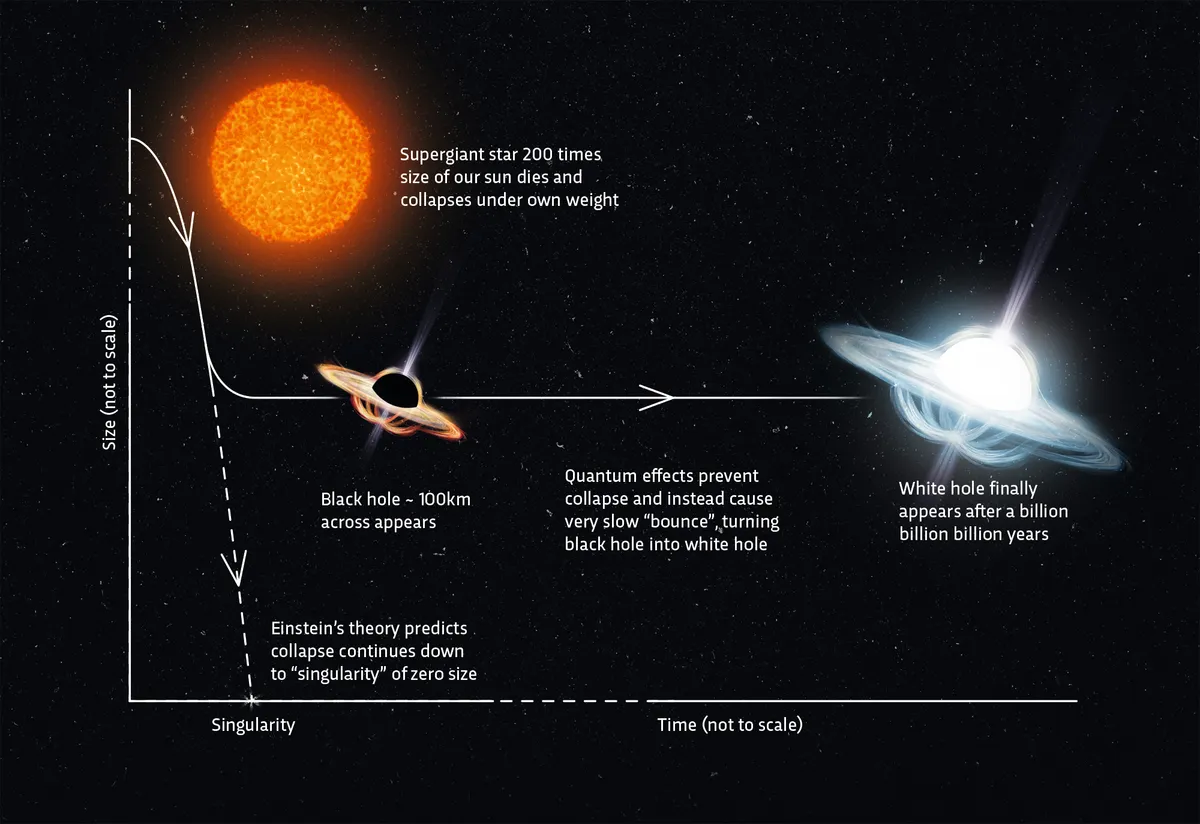A white hole is a bizarre cosmic object which is intensely bright, and from which matter gushes rather than disappears. In other words, it’s the exact opposite of a black hole. But unlike black holes, there’s no consensus about whether white holes exist, or how they’d be formed.
They are predicted by Einstein’s theory of gravity, and are most often mentioned in the context of ‘wormholes’, in which a black hole acts as the entry point to a tunnel through space and time, ending in a white hole somewhere else in the Universe. But this is deeply controversial, because Einstein’s theory predicts the existence of a so-called singularity at the centre of black holes – a state of infinite gravity which would prevent anything from passing through to the white hole on the other side.
However, some theorists think that a combination of Einstein’s theory and quantum theory points to a new way of thinking about white holes. Instead of being the ‘exit’ from a wormhole, they may be a slow-motion replay of the formation of the original black hole.

The process starts when an old massive star collapses under its own weight and forms a black hole (see diagram, above). But then, quantum effects occurring around the surface of the black hole halt further collapse to a singularity, and instead begin to gradually turn the black hole into a white hole that’s spewing out the original star matter again. The process is mind-bendingly slow, though, so we may be in for a very long wait to find out if white holes really exist.
Read more:
- What is a black hole and how did we discover them?
- Do black holes collapse?
- Quick Q&A: What happens to the light that’s been sucked into a black hole?
- How big could a black hole get?
Looking for stargazing tips? Checkout our complete astronomy for beginners UK guide.